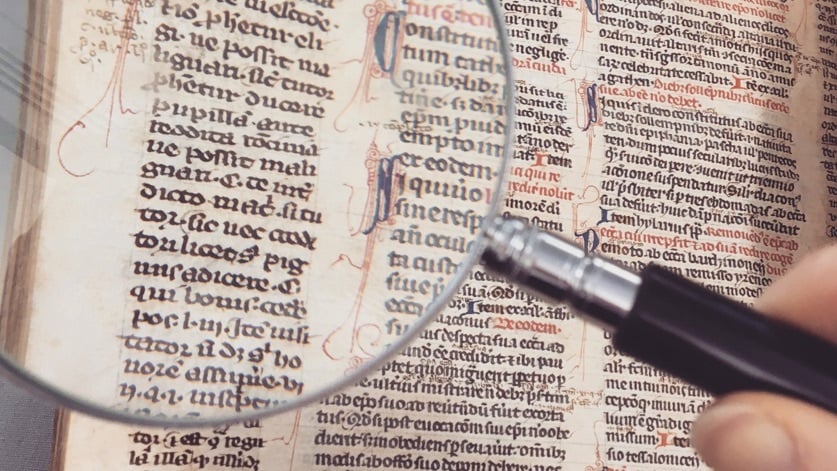In High School Writing: History Lab, students take on the role of historians as they examine and analyze evidence to present an interpretation of past events.
Teens examine historical accounts of a single event to show different, sometimes contradictory perspectives. They also situate that event and those documents in their time, analyzing context and subtext in addition to deciphering the text.
Students create an effective question to guide their historical inquiry of a topic, investigate source material from multiple perspectives, generate insights into the nuances of text, and postulate an interpretation based on evidence.
Syllabus
Week One
Gaining Perspective. Students begin the study of historical thinking with their own personal history. The focus this week: noticing the varying perspectives brought to any historical event.
Week Two
What's at Stake? Questioning sources requires students to engage in critical thinking as they determine the biases both participants and historians interpreting past events bring to any text.
Week Three
When a Line Isn't Straight. Students choose a topic and activity to consider the essential skill of chronological reasoning. How do events impact each other across time?
Week Four
History Lab. Our culminating project. Students bring their new historical thinking skills to bear as they set up an investigation of a history topic of their choosing.
Common Core and Academic Standards Support
What follows is a word bank and set of skills associated with this class. Use them to craft your own learning narrative for use in year-end evaluations, charter school reports, or any other accountability source.
Word Bank
- Argument
- Bias
- Chronological Reasoning
- Citations
- Counterargument
- Editing
- Expert sources
- Insight and interpretation
- Multiple perspectives
- Primary Sources
- Revision
- Research
- Text, context, and subtext
Core Skills
- Analyze source texts and apply critical thinking
- Craft a historical question to research
- Determine bias and point of view on historical source material
- Evaluate positive and negative impacts of documents surrounding a particular event
- Edit writing for standard English usage
- Examine the intersection of multiple perspectives around an event
- Evaluate subtext and context of historical documents
- Outline and Organize research information from multiple sources
- Revise writing for clarity, flow, order, interest, and economy of language
- Write detailed, organized, structured original narratives
